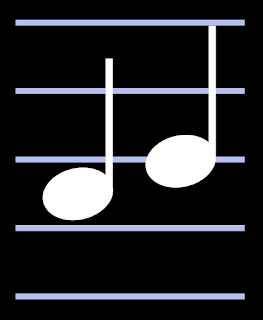The people who post fake comments onto blogs annoy me. Except that many of them aren't even people - they are automated algorithms running on computers. An interesting example arrived in my Blog Comments Inbox recently, and it got me thinking about Artificial Intelligence (AI), and its more common predecessor: Artificial Stupidity.
The comment looked almost innocuous at first. it was reasonably well targetted to this blog because it talked about electronics, and the name was actually a link to a website that claimed to reveal places where you could learn about electronics. The first giveaway was that URL instead of a name, but the web-site itself was a dead giveaway. At first glance it seemed to be a couple of A4 pages-worth of text, talking about how to learn electronics via resources on the InterWeb.
Not AI
But then I read the first paragraph, and then the second. Each seemed like a generic introduction to the topic, but they didn't actually get to anything like any recommendations for sites, or URLs... And the second paragraph didn't follow on from the first. In fact, they read like two different authors writing on two slightly different topics. The next two paragraphs were worse in their lack of linking, and in the divergence of styles. As I continued reading, I realised that each paragraph was just text extracted from a search term something like: "Where can I study electronics online?' and then assembled together on a web page, with lots of associated adverts. Nowhere did it actually get to anything useful like a real URL linking to online resources, nor were there any summary tables of good resources, and in fact, there wasn't any useful content anywhere on the page. The whole thing was designed to look good enough to fool someone into thinking it might be a useful thing for blog readers to know about, and to let the comment appear in the blog. Then the web-page would generate money for its owners whenever anyone clicked on the ads. In other words: a nasty parasite.
Well, I wasn't fooled, and I deleted the comment, and I would advise you to be cautious when you search for phrases like: 'How can I learn about electronics online?', because there are lots of leech sites like the one that I rejected. Alternatively, try these web-sites for proper learning relevant to this blog:
There, that's infinitely more genuine information that there was on that entire web-page. And there are lots more resources for you to find out there! Note that some of these are free, and some are not. The quality of some of the free ones (MIT, for example) is very high!
I reckon that the web-page that I rejected was probably not created by Artificial Intelligence (AI), it felt much more like a simple algorithm (Artificial Stupidity) with maybe some high level editing by a human being. So 'Not AI' rather than AI. But there are some interesting applications of real AI that are starting to appear that could affect how you make music in the future...or don't make music...
Real AI
The last couple of years have seen two big trends in electronic music: Cloud Sample Libraries, and AI Assistance.
Subscription-based sample libraries like Splice , Noiiz , LoopCloud, and Roland Cloud provide access to huge numbers of ready-to-use samples, and mean that you don't need to fill a room with hardware synths, or even fill your computer's SSD or Hard Disk withVSTs. They aren't connected with AI, other than they use simple background algorithms to learn what you like and try to sell you more of that. But I'm not a fan of them because they typically require you to give them root-level access to your computer, which they justify by saying they have to protect all of the valuable content which you can download, but I'm not happy with something where you are giving them permission to do anything at all on your computer, After all, the news isn't full of repeated computer breaches where millions of User IDs, Passwords and Credit Card details are stolen by hackers, so there's no problem with giving deep unfettered access to your computer, is there?
AI Assistance is more subtle, and I don't know of a generic word for it yet - there aren't enough similar instances of it for people to need a word for it, but this doesn't mean that there aren't lots of examples of it out there. It appears as drum machines, or melody generators, or chord suggestions, and it often provides easy access to generated patterns, melodies, chord progressions, etc. These are several steps up from the Randomisation generators that you got back in the 20th Century.
AI Drum Machine - Algonaut Atlas
AI Beat Assistant - Rhythmic
VST Patterns - Sonic Charge Microtonic
One thing to be aware of is that a lot of the cheaper examples of 'AI Music' are actually just Machine Learning (ML), which has become very accessible recently to programmers, and allows a network of connected modes (a 'neural network') to learn from pre-prepared training materials and then to output lots of variations of it - give me more 'like this'... ML is kind of 'entry-level' AI...
Unless you make movies, then you might not have seen another application for AI that has been gradually increasing the amount of advertising that they do, and that is AI-generated music for movies. In other words, if you have made a film or movie and you don't want to pay a human composer to write music for it, then you can get AI to do it for you...
AI Music for Movies - Ecrett
Creative Assistant - Aiva
AI Music Generator - SoundRaw
Broad Application AI
To really appreciate where AI is going, then you need to look beyond the 'specific applications' and the often very obvious ML experiments, and go for something more generic. One very good example is OpenAI. When you go to their web-site they don't try and sell you a solution, Instead they show you just a selection of overviews of things that you might be able to use their AI software to do. This isn't just one or two possible applications - you scroll on and on through lots of things they can do. It's a bit like going into a DIY store to buy a screwdriver, and discovering that they sell jus a few other things as well... No, scrub that, imagine arriving at an out-of-town retail park where they have a car park surrounded on all sides by huge DIY, carpet, furniture, homeware, clothes, electricals, electronics, video gaming, computers, media... when you just wanted a screwdriver. OpenAI is an overwhelming place, and I think that it shows a glimpse not of the future, but of how lots of people will be making the future of what you do/buy/watch/play (etc.) next online.
I've tried to curate these so that the AI Robot-oriented companies aren't included, but if you want to see the state-of-the-art in robots, then Boston Dynamics are a good starting point...
And finally...
I'm always intrigued by companies whose advertising is based around a competitor. It doesn't seem to be a very 'Intelligent' thing to do. When I did a Google search for 'openai' then the top two paid slots, right at the top of the search, were from two other companies also selling AI 'solutions'. I have not included them in the list above. If I'm searching for 'Moog', then do I want the top result to be from another synthesizer manufacturer? (Oh, and when I did this search, then the top answers were all 'Moog'!)
(Oh, and why did I use those notes in the graphic near the start of this blog?)
---
If you find my writing helpful, informative or entertaining, then please consider visiting this link:
 Buy me a coffee (Encourage me to write more posts like this one!)
Buy me a coffee (Encourage me to write more posts like this one!)
Synthesizerwriter's Store (New 'Modular thinking' designs now available!)







No comments:
Post a Comment